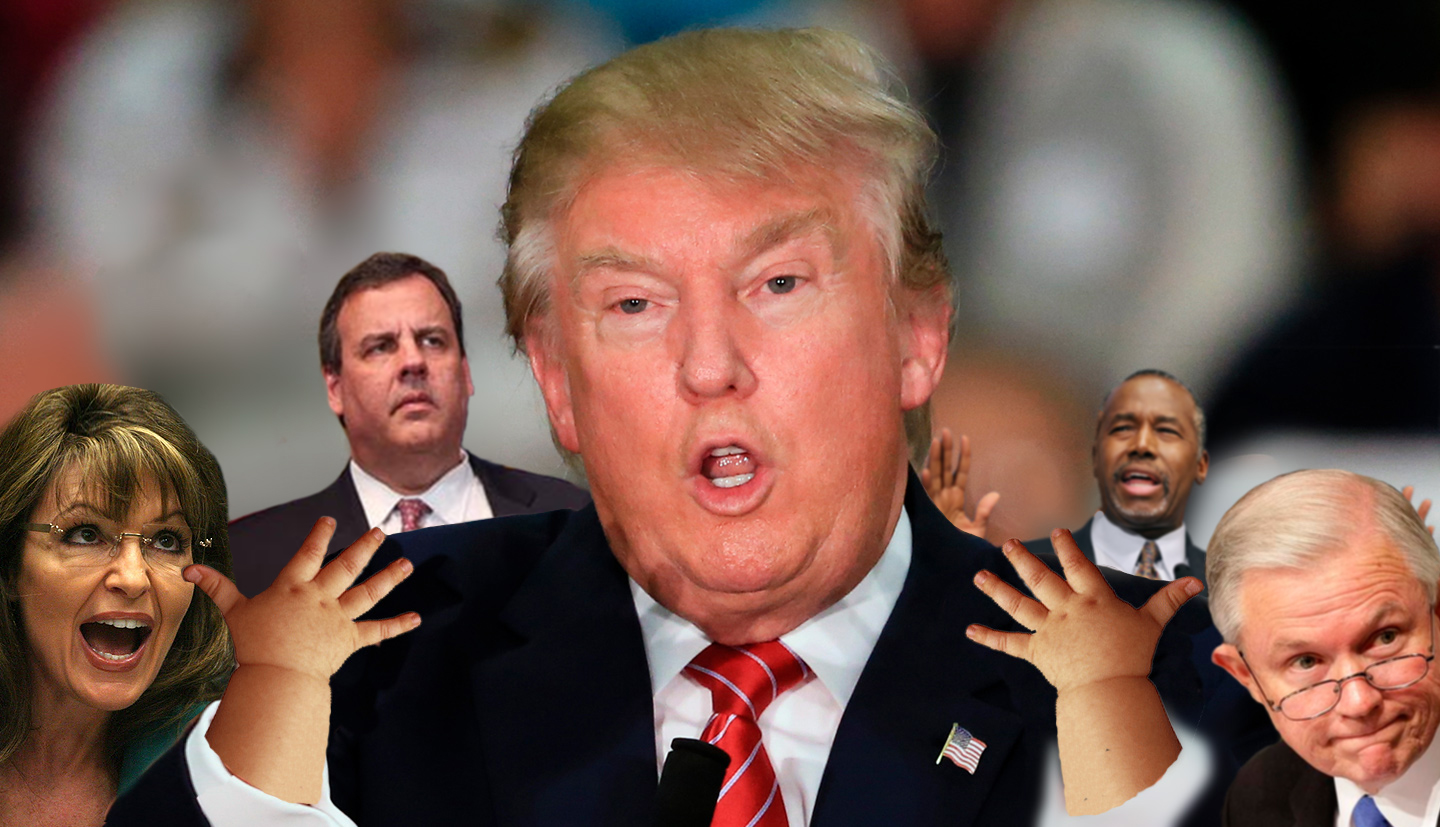Trump is making a real mess of his campaign
 What you cannot dispute is that the way [Trump] has run his campaign since sealing the Republican nomination two months ago has been absolutely disastrous.
What you cannot dispute is that the way [Trump] has run his campaign since sealing the Republican nomination two months ago has been absolutely disastrous.
Campaigns are complicated things. No one gets every piece of them right. Some candidates are great at big rallies. Some are good only at small events. Some are terrific TV communicators but bad on the stump. Some delegate well, and others don’t. Some never waver from a message, while others can’t seem to find one with a 10-foot pole. It’s a high-wire balancing act every day with tens of millions of people watching.
But there are basic blocking and tackling elements of any campaign that are less complex — and absolutely necessary to do if you want to win. The most basic of all? If your opponent is having a bad day or a bad week, let them have it. Just get out of the way.
For example: When Hillary Clinton found herself at the wrong end of a scathing report about her email practices delivered by FBI Director James Comey last week, Trump would have done well to, literally, talk about nothing other than that for the rest of the week — and maybe even the rest of the month!
Trump seemed to grasp that early in the day on Wednesday when he tweeted this: “Convention speaker schedule to be released tomorrow. Let today be devoted to Crooked Hillary and the rigged system under which we live.”
That is absolutely, 100 percent the right thing to do. And not only that: Trump also released his June fundraising numbers — a surprisingly solid $51 million raised.
The daily story in the presidential race, as of Wednesday afternoon, was this: “Clinton tries to change subject on tough email report; Trump rakes in cash.” Pretty good for the presumptive Republican nominee!
Then Trump went to Cincinnati for a rally with vice-presidential hopeful Newt Gingrich. And it all fell apart.
Trump spent the first 20 or so minutes of his speech reading from prepared notes — hitting Clinton on her email practices and raising questions about her honesty and trustworthiness.
Then something snapped. He threw away the notes and lit into the media — and society, more generally — over two recent controversies: (1) his campaign tweeting out and then removing an image that looked suspiciously like the Star of David, and (2) his comments about how late Iraqi dictator Saddam Hussein was “so good” when it came to dealing with terrorists.
“I said: ‘You shouldn’t have taken it down.’ You know, they took the star down,” Trump told the crowd. “I said: ‘Too bad. You should have left it up.’ I would have rather defended it — just leave it up and say: No, that’s not a Star of David. That’s just a star.”
But, wait! There’s more! “I wake up, I turn on the television: ‘Donald Trump loves Saddam Hussein. He loves Saddam Hussein,’ ” Trump said. “That’s not what I said. So, that’s the narrative.”
And still more! Once the event in Cincinnati was over, Trump took to Twitter to drive home his point about being unfairly maligned on the alleged Star of David tweet. He tweeted an image of a book version of Disney’s “Frozen” movie that featured a six-sided star: “Where is the outrage for this Disney book? Is this the ‘Star of David’ also? Dishonest media!”
Remember that good headline Trump looked headed toward? It got replaced by “Trump says campaign shouldn’t have deleted image circulated by white supremacists” (The Washington Post), “In a Defiant, Angry Speech, Donald Trump Defends Image Seen as Anti-Semitic” (New York Times), and “Trump Says Deleting Allegedly Anti-Semitic Tweet Was Mistake” (Wall Street Journal).
It’s hard to explain how bad that turnaround is for Trump. And how avoidable it all was. What’s even more remarkable is that he seemed to have the blueprint — read the speech, blast Clinton, get out of the way — for a good day. Instead, he voluntarily dipped into two issues — debating whether he was anti-Semitic and defending his praise for a brutal dictator — that are straight losers, politically speaking.
What happened this past week is far from an isolated incident. Think back to the end of May. The State Department released a brutal report lambasting Clinton for her email practices. It was an absolute gift for Trump and Republicans, a perfect illustration of the narrative of corruption and pocket-lining they had been telling about Clinton. Less than 48 hours later, Trump went to San Diego and delivered an 11-minute rant against a federal judge named Gonzalo Curiel, who the real-estate mogul said was biased against him because of Curiel’s Mexican heritage. (Curiel was born in Indiana, but his parents hail from Mexico.)
Trump spent the next two weeks, at least, trying to get out from under the Curiel controversy — a timeline extended by his unwillingness to simply apologize and move on. (Sound familiar?) Eventually, he said he had been misunderstood.
Malpractice is a harsh word. But there’s no other word for taking a good day and turning it not only into a bad day but potentially a bad week or a bad month. Winning campaigns play up their strengths and play down their flaws. Trump seems committed to doing just the opposite.
This isn’t the campaign’s fault. The campaign — from manager Paul Manafort on down — is clearly telling Trump the right things to do. He just isn’t willing to do them. The blame is his. Pure and simple.
